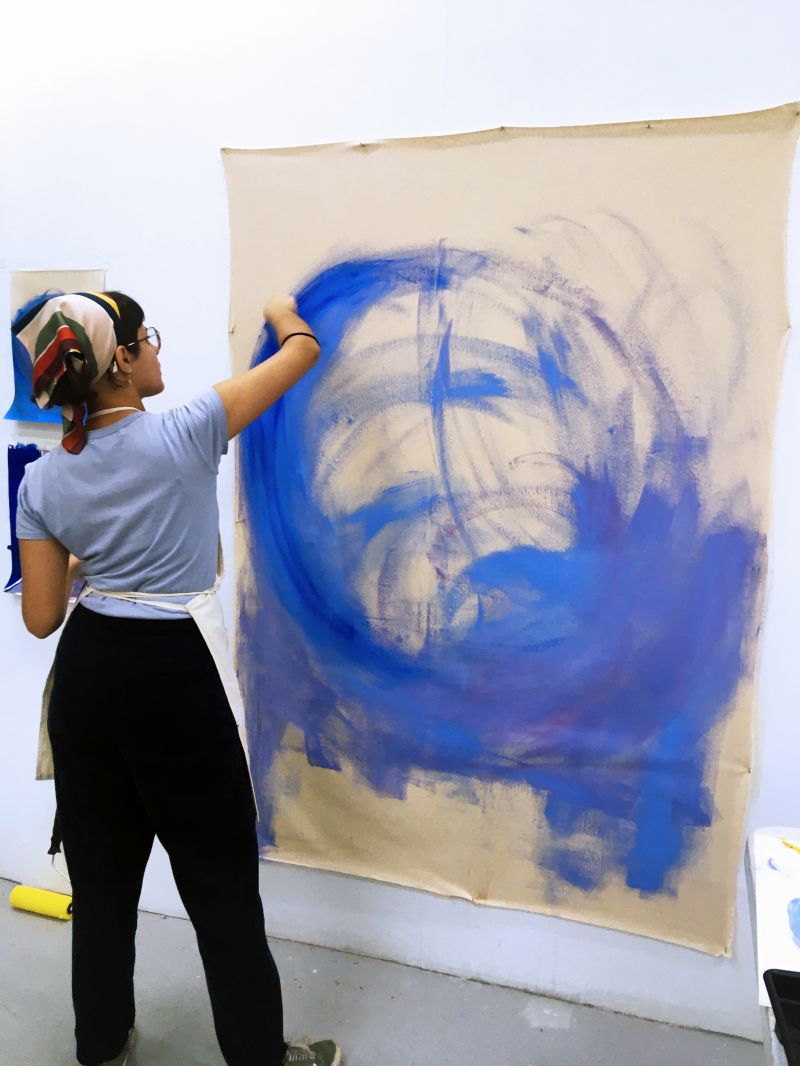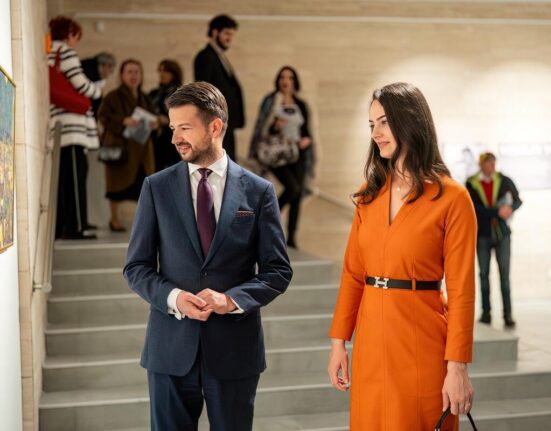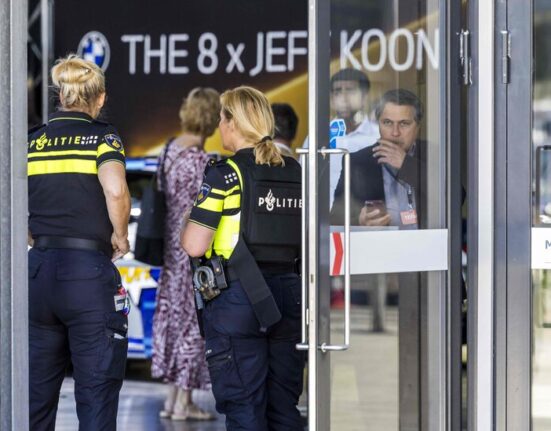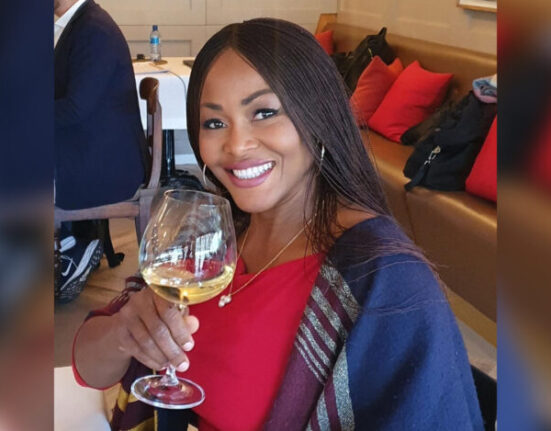Citizens of the EU, EEA and Switzerland can all come to Britain on a student visa. But what’s studying here like in practice? We spoke to Margarida Pinheiro and Ludmila Moleman, two students from the University of the Arts London (UAL), to hear about their experiences.
Margarida and Ludmila are by no means alone. UAL currently has 2,900 students from the EU, making up 15 per cent of its student body, from across 27 member states. So read on, and find out just why you should join them.
“London is such an inspiring city.”
Margarida is a Portuguese artist taking an MA in Fine Art: Painting at Camberwell UAL. And she’d definitely recommend studying in London. “It’s such a great opportunity to live away from home, get to know another culture, and improve your communication skills in another language,” she explains.
“Seeing new things all the time is inspiring and very helpful in getting the creative juices flowing. London is a particularly inspiring city for its monumental art world, history and busy city life. I love the fact that you can just hop on a bus, and you’re in amazing museums.”
Ludmila Moleman, who’s come to UAL from Amsterdam to take an MA in Virtual Reality, agrees. “Every time of the day, everywhere you are in London, it’s possible for something unusual to happen,” she says. “Like having an inspiring conversation with a fellow bus passenger who’s playing Pokémon Go on three phones at the same time. Or that I keep finding nice pairs of shoes just on the streets!
“These little things, happening throughout the day, help me to stay open-minded and look further than my own phone screen.”
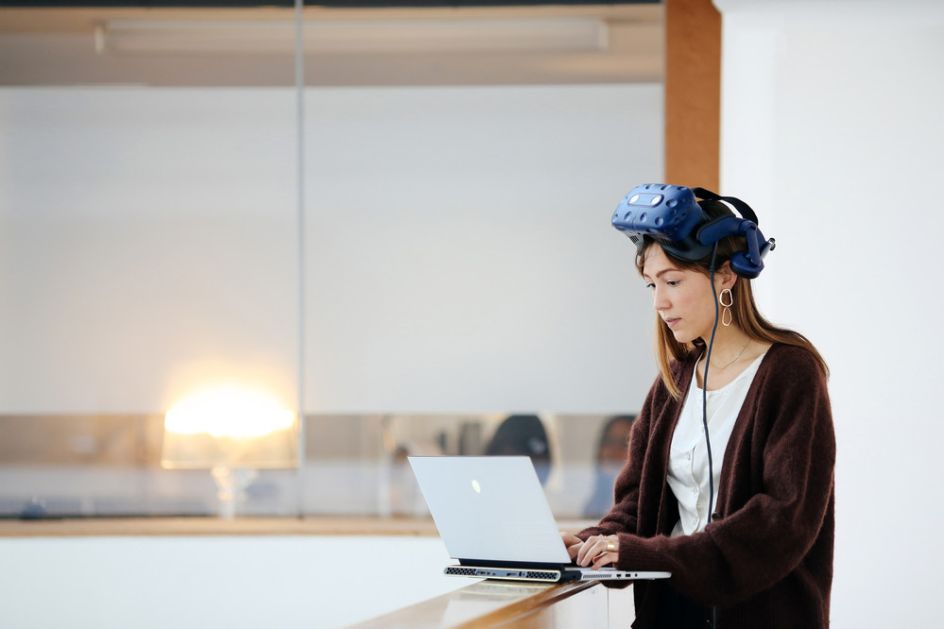
Ludmila Moleman, MA Virtual Reality, London College of Communication © Alys Tomlinson
“Let the ideas flow.”
Of course, the pandemic has posed challenges. “Currently, due to Covid-19, we can only work at Camberwell’s studios three days a week, and the classes are all online,” Margarida explains. “That splits my week into two different sections, something I’ve grown to like – the ‘reflecting’ half and the ‘practical’ half.
“When we have online classes, my days are usually pretty calm and spent in loungewear,” she continues. “Me and my boyfriend, who’s also a student at Camberwell and is on my course, watch the online classes and then I write a bit or read. Usually, we’ll then leave the house and go for a walk in one of the many parks London has to offer; we always end up loving it so much. I like watching people walking their dogs and the dogs chasing the squirrels. It’s a great time to let the mind wander, and the ideas flow.”
Then, during the second half of her week, Margarida will go to Camberwell in the morning and do a full day’s work: preparing her canvas, sketching, painting, journaling, and reflecting on her latest progress. “This half of the week is all about focusing and making my time count since I only have those three days to really do the practical work,” she notes.
Ludmila has also had the opportunity to get hands-on with her studies at UAL. “On a typical day, I’ll cycle to London College of Communication, get into the VR classroom, have a chat with my coursemates, and start to work on VR development,” she explains. “This means that I build a VR environment in Unity and code the interactions. I’m constantly checking my creation in the VR headset to see if it looks and does what I want it to do. Sometimes I switch between VR and reality about 70 times a day.”
Recently, she’s been enjoying working on her final major project, ‘Reality Check’. “It’s a location-based immersive installation that offers a titillating journey through alternate realities by using MR, VR and AR and film,” she explains. “By discovering deeper layers of perceptibility, the players are invited to think about the origins of what reality really is, and what it may mean to be human, at a time of rapid technological developments.”
Her advice to prospective UAL students is as follows: “Spend your time wisely. The MA Virtual Reality degree only takes a year and three months. This is just enough time to do three to four different projects, so choose ones that reflect what you love and from which you’ll learn the most.”
More generally, Ludmila adds: “I’ve learned that collaborating and being flexible is so important. Having this mindset will help me a lot in the future, both in my career and my life as a whole.”
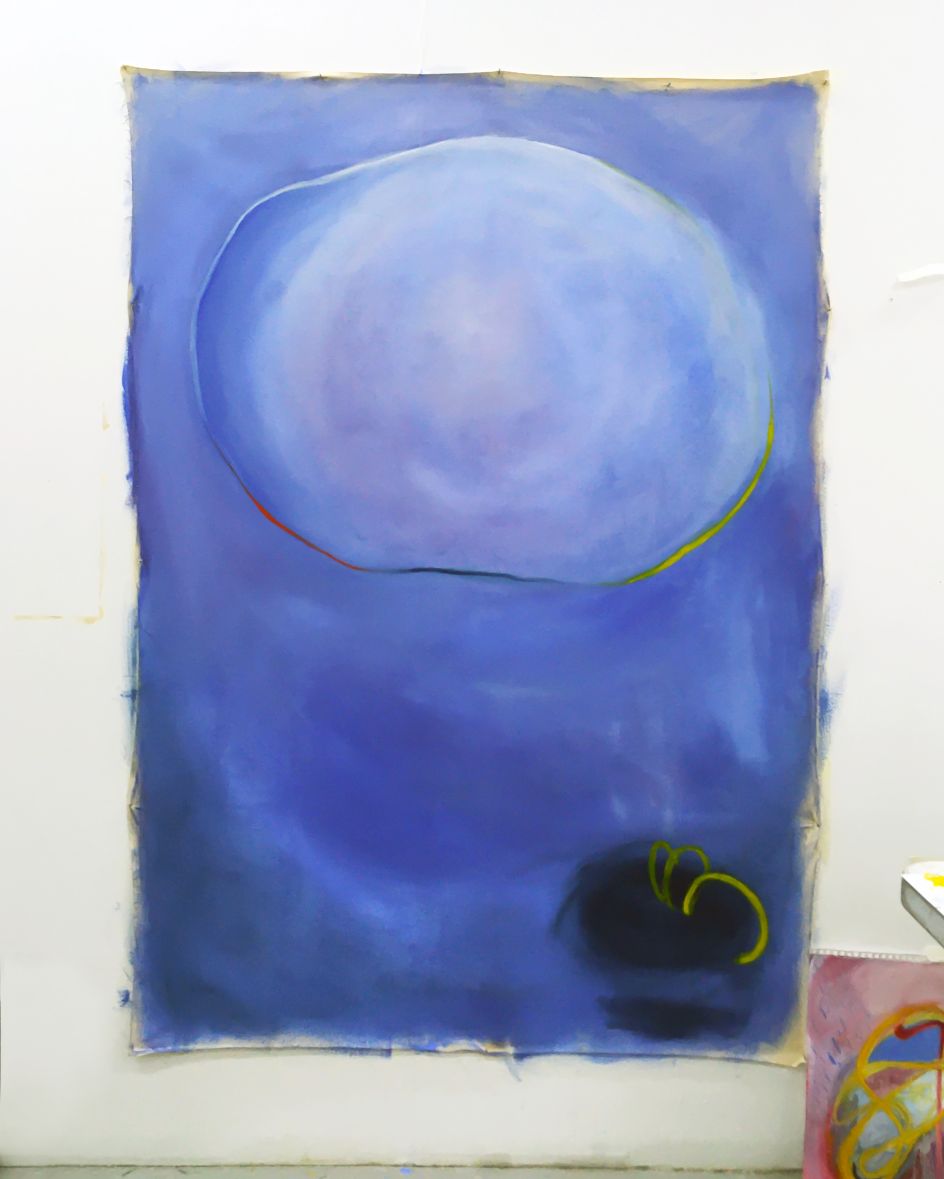
Margarida Pinheiro, MA Fine Art: Painting, Camberwell College of Arts © Margarida Pinheiro
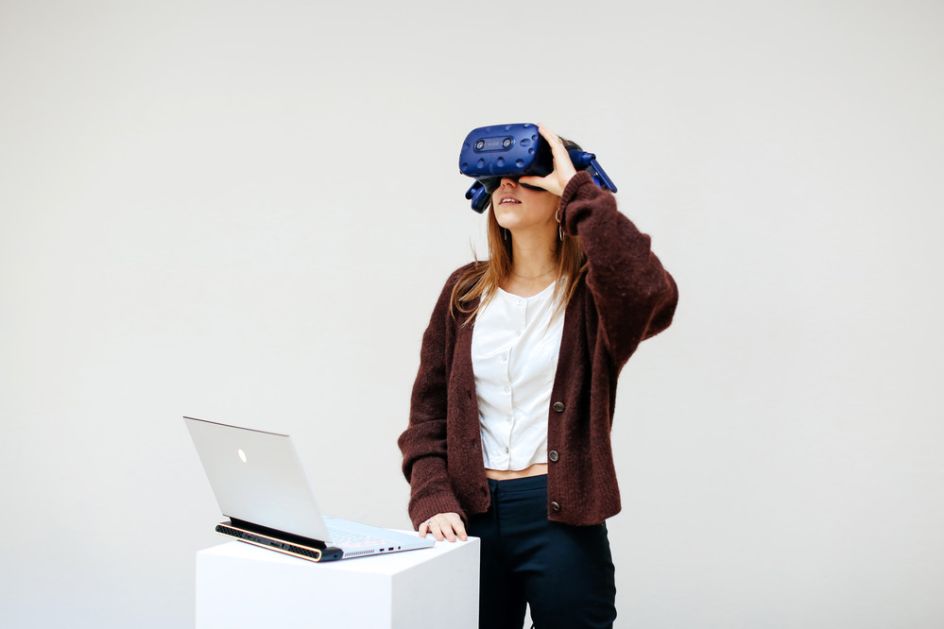
Ludmila Moleman, MA Virtual Reality, London College of Communication © Alys Tomlinson
“I love the practical focus.”
It’s a mindset that Margarida shares, too, and she’s taken full advantage of the thriving and supportive community around UAL. “For me, the main highlight of studying here is the access to interdisciplinary studios and opportunities,” she says. “From students to staff members, everyone is always available to help you, and that creates such a positive and creative environment.”
And as a result, she’s feeling very positive about her future career. “I love the fact that my course is so focused on teaching us all the practical aspects of being an artist,” she explains.
“We get opportunities such as curating our own group shows and learning from professionals. We’ve learnt how to mount work on a wall, how to stretch a canvas, what are the best materials for our personal project, and so much more. The staff are very honest about what opportunities are out there and focused on giving you all the tools and confidence you need to go and get them.”
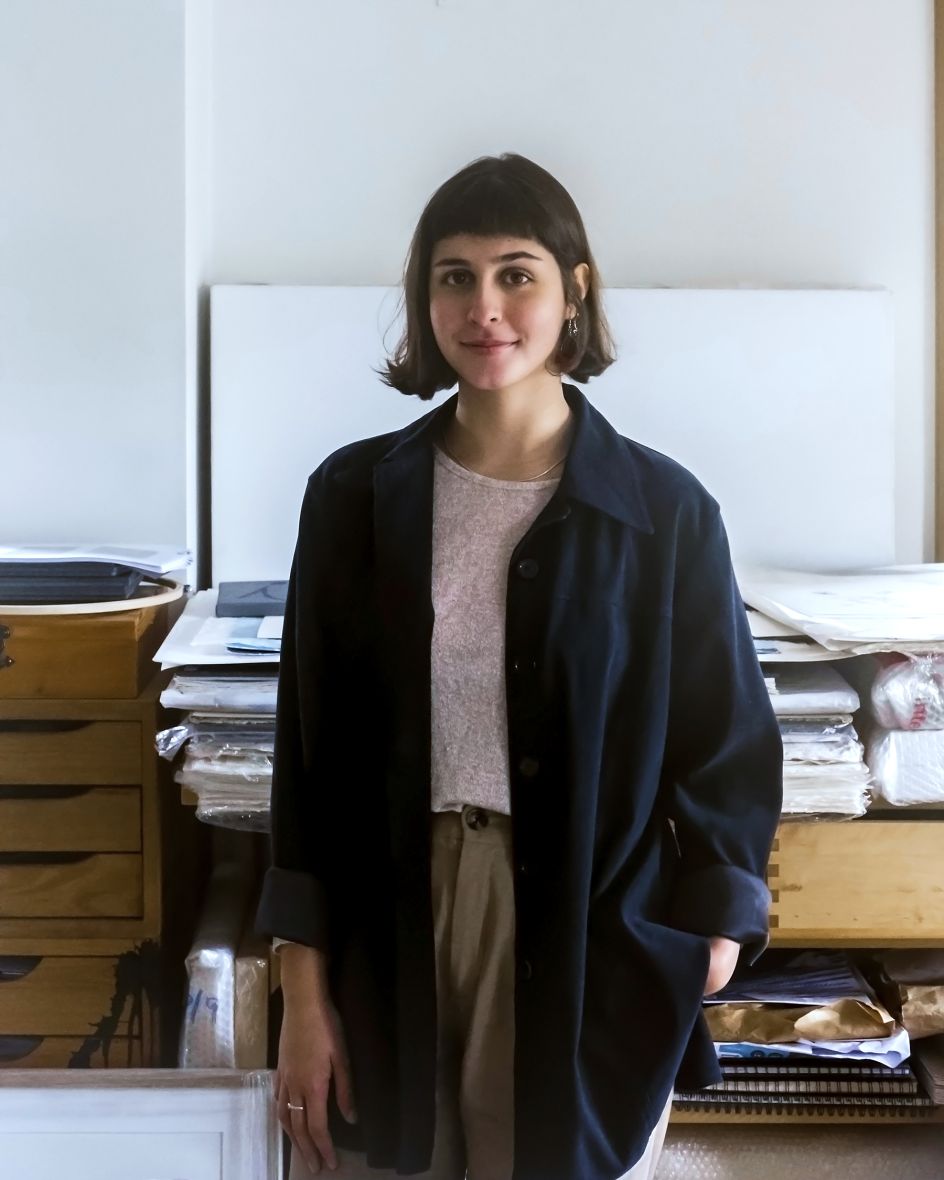
Margarida Pinheiro, MA Fine Art: Painting, Camberwell College of Arts © Francisco Timóteo
Apply to study at UAL
All EU, EEA and Swiss students can apply to study at University of the Arts London. Check out postgraduate courses at UAL to find the right one for you.
Once you are accepted onto a course, you will need to receive a CAS (Confirmation of Acceptance for Studies) in order to apply for a student visa. You will receive your CAS from UAL’s Admissions office once you have met the conditions of your offer and paid your deposit. Get in touch with one of UAL’s official representatives in your country, who will be able to support you through the visa application process.
You can find detailed information about how Brexit affects EU students here, and you can also contact UAL’s Student Advice Service for specific immigration queries.
Visit UAL’s website for up to date information on their response to Covid-19 and how students are studying and learning at UAL.

